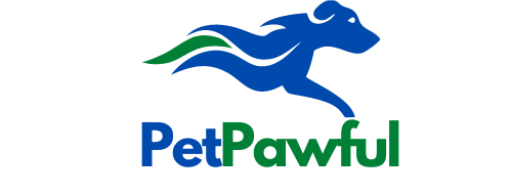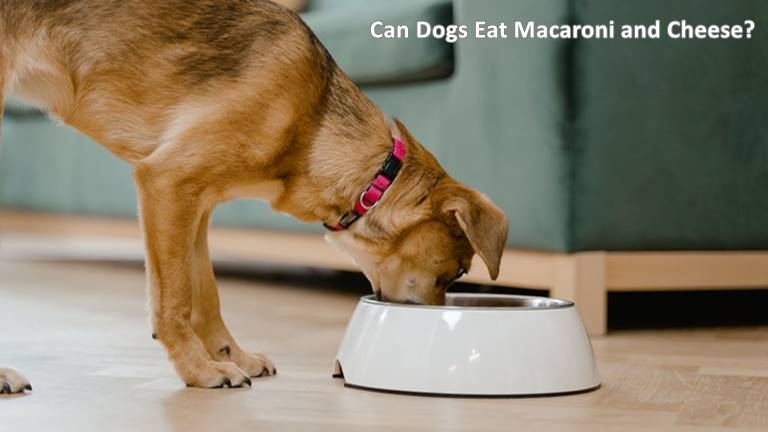As responsible pet owners, we often feel tempted to share our favorite foods with our beloved furry companions. However, it is important to remember that not all human foods are suitable for dogs. One such popular dish is macaroni and cheese. While it may seem harmless to offer a small portion of this comfort food to your canine friend, it is crucial to understand the potential risks involved.
In this blog post, we will explore whether dogs can safely eat macaroni and cheese, examining the safety of macaroni, cheese, the associated health risks, and the appropriate actions to take if your dog consumes this dish.
Can Dogs eat Macaroni?
Are you wondering if macaroni is a safe treat for your furry friend? Well, the good news is that plain macaroni, made from wheat flour, can be a safe addition to your dog’s diet in small quantities.
Not only does it provide them with a boost of energy from carbohydrates, but it can also be a delightful change of taste for their palate. However, it’s important to consider your dog’s carnivorous nature and the impact of grains and carbohydrates on their digestion.
While dogs can enjoy a nibble of macaroni, it’s crucial to remember the golden rule of moderation. Feeding them excessive amounts of macaroni can upset their delicate stomachs, leading to unpleasant digestive issues like diarrhea or vomiting.
To play it safe, stick to plain macaroni without any salt, sauces, garlic, or onions. This way, you can ensure a wholesome and balanced addition to their diet.
But wait, before you start turning macaroni into a regular treat for your furry friend, there are a few more things to consider. Dogs thrive on a primarily carnivorous diet, which means their bodies aren’t optimized to handle large quantities of grains or carbohydrates.
Feeding them macaroni too frequently may contribute to unwanted weight gain. Plus, it’s important to note that macaroni and cheese, a classic favorite among humans, is a big no-no for dogs. Its high fat and sodium content can spell trouble for their health.
So, while macaroni can be a safe occasional indulgence for your canine companion, remember to exercise caution and stick to small, plain servings.
Keeping their diet balanced and in line with their natural carnivorous tendencies will ensure their overall well-being. Treat your four-legged friend with love and care, and they’ll wag their tail in appreciation of your thoughtful choices.
The Verdict: Macaroni can be a safe occasional treat for dogs in small, plain servings, providing them with a carbohydrate boost. However, it’s important to consider their carnivorous nature and avoid excessive quantities to prevent digestive issues and weight gain.
Can Dogs eat Cheese?
If you’re wondering whether cheese is a suitable treat for your beloved dog, we’ve got the answers you need. Cheese can indeed offer some nutritional benefits to dogs, including protein and calcium. However, like all good things in life, moderation is key.
It’s essential to consider your dog’s individual needs and potential lactose intolerance. While some dogs can handle dairy products without any issues, others may struggle to digest them.
If your pup falls into the latter category, consuming cheese may lead to digestive discomfort. Keep an eye out for symptoms like upset stomach, vomiting, or diarrhea, especially if your dog is young or has a sensitive tummy.
When it comes to choosing the right cheese for your four-legged friend, not all options are created equal. Stay away from cheeses that contain ingredients like onions, garlic, or strong flavorings, as they can be toxic to dogs. Instead, opt for mild, low-fat varieties that are less likely to upset their delicate digestive systems.
If you decide to introduce cheese into your dog’s diet, it can even become a fantastic training tool, particularly for puppies. Just remember to proceed with caution and consult your veterinarian beforehand. They can provide tailored advice based on your dog’s specific needs, ensuring that cheese is a safe and enjoyable addition to their diet.
So, go ahead and treat your furry friend to a cheesy delight, but remember to keep it controlled, choose wisely, and prioritize their well-being. With a little knowledge and mindful choices, you can share the joy of cheese with your canine companion while keeping their health in check.
The Verdict: Cheese can be a suitable treat for dogs, offering nutritional benefits like protein and calcium. However, consider moderation and your dog’s individual needs, as lactose intolerance can cause digestive issues. Choose mild, low-fat cheeses and consult with a vet for guidance to ensure a safe and enjoyable addition to their diet.
What Should You Do if Your Dog Ate Macaroni and Cheese?
If your dog accidentally consumes macaroni and cheese or if you suspect they have, it is important to promptly assess the situation. Monitor your dog for any signs of discomfort, such as vomiting, diarrhea, or lethargy.
If your dog exhibits severe symptoms or if you have any concerns, it is recommended to contact your veterinarian for guidance. They can provide appropriate advice based on your dog’s specific circumstances and help mitigate any potential health issues.
Final Thoughts
While the idea of sharing a delicious bowl of macaroni and cheese with your dog may be appealing, it is crucial to prioritize their health and well-being. Macaroni and cheese, despite being popular among humans, should not be a regular part of a dog’s diet.
If you want to treat your dog with something special, consider exploring dog-friendly alternatives specifically designed to meet their nutritional needs. Always consult with your veterinarian before introducing any new foods into your dog’s diet to ensure their safety and optimal health.
Remember, a balanced and appropriate diet is key to keeping your furry friend healthy and happy for many years to come.


